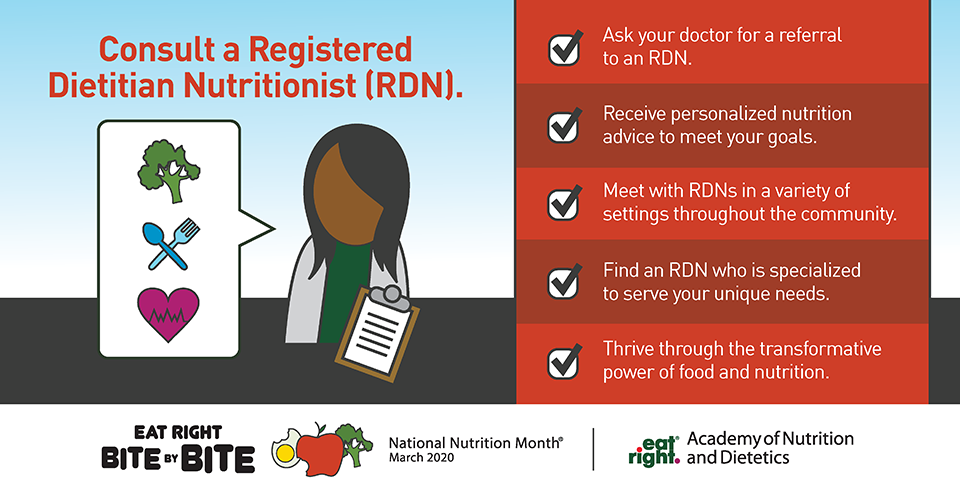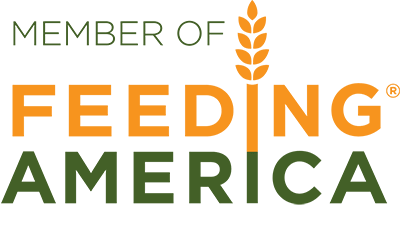National Nutrition Month: Consult a Registered Dietitian Nutritionist (RDN)

March is National Nutrition Month©. Join the East Texas Food Bank and the Academy of Nutrition and Dietetics in celebration by focusing on the importance of making informed food choices and developing sound eating and physical activity habits.
This week, the focus is on consulting a Registered Dietitian Nutritionist. Here are some tips to help guide you:
- Ask your doctor for a referral to visit an RDN – Many registered dietitian nutritionists work in the treatment and prevention of disease by providing medical nutrition therapy. The RDN often acts as part of a medical team, in various practice settings, such as hospitals, physician offices, private practice and other health care facilities. More information
- Receive personalized nutrition advice to meet goals – An RDN can help you create measurable, action-oriented and time-bound goals. More information
- Meet with RDNs in settings throughout the community – A registered dietitian nutritionist is a food and nutrition expert who has met academic and professional requirements More information
- Find an RDN who is specialized to serve your unique needs – Between what you hear on TV and read in the news, eating right can seem like a real challenge. But it doesn’t have to be. A registered dietitian, or RD, or registered dietitian nutritionist, or RDN, will partner with you to develop a safe and realistic eating plan that you can stick with for the long haul. To guide and motivate you, an RD or RDN will use creative and out-of-the-box strategies to help with meal planning, grocery shopping and mindful eating. More information
- Thrive through the transformative power of food and nutrition – Eating right is not a one-size-fits-all endeavor. A healthy plate can include foods from all corners of the globe. In fact, the 2015 Dietary Guidelines for Americans says, “Healthy eating patterns are adaptable … Any eating pattern can be tailored to the individual’s socio-cultural and personal preferences.” More information
Information provided by eatright.org
